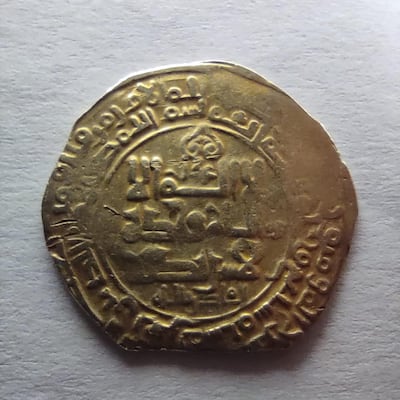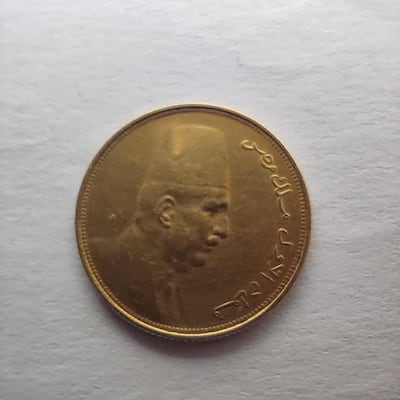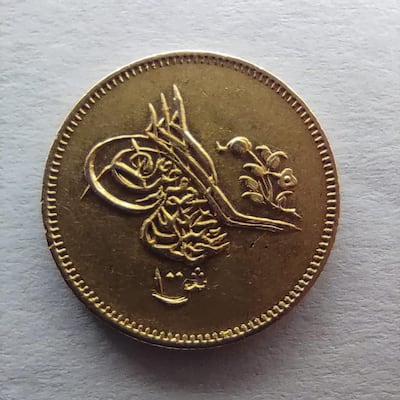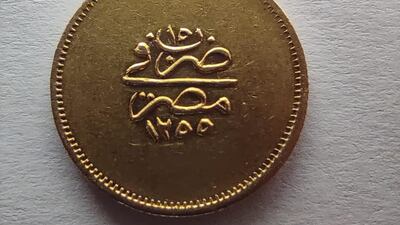Egyptian authorities thwarted an attempt to smuggle 34 rare coins out of the country on Wednesday.
The coins seized at Cairo International Airport date back to various periods of Egypt’s history, the country’s antiquities ministry said.
The oldest was a dinar dating back to the Abbasid caliphate and inscribed with the characteristic Kufic script.

The haul also included 24 circular coins from the Ottoman Empire, some of which were minted during the reign of Sultan Hussein Kamel, who ruled Egypt from 1912 until his death in 1917.
A gold coin, minted in Egypt in 1255, according to the date in its inscription, was also seized.
Eight coins bearing the insignia of Egypt’s penultimate monarch King Fuad I were found, including a gold coin with the ruler's face on it.

Another coin dates back to the reign of Egypt’s last king, Farouk I and also features his likeness.
Antiquities ministry officials at the airport received information from customs officers at Terminal 2 that a number of coins were found in a traveller's luggage.
The traveller was arrested and the coins seized.
The seizure was part of efforts to enforce the country’s antiquities law, which forbids private ownership of national artefacts.

Dr Bassam El Shamaa, a prominent Egyptian historian, told The National that coins are by far the most smuggled artefacts worldwide.
“In the business of smuggling and selling antiquities around the world, including in Egypt, size is everything. The small size enables smugglers to do their job in a much easier and more discreet manner,” he said.
He also said that in contrast to their small size, coins can often fetch hefty sums of money at artefact auctions worldwide.
A famous coin dating back to the year 77 of the Hijri calendar was sold in 2020 at a London auction house for more than $400,000.


